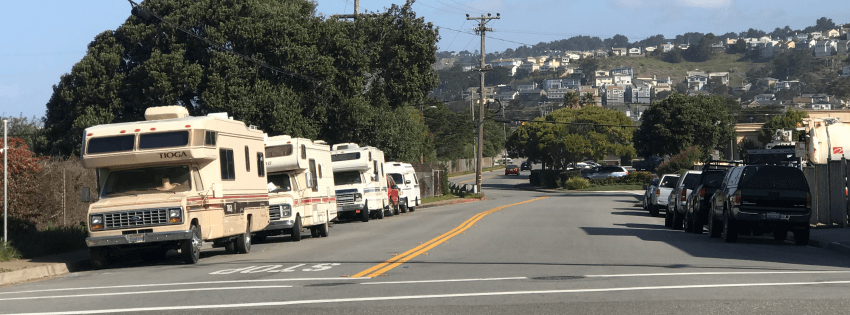California’s Proposed RV Ban Sparks Debate Among Travelers and Advocates
California, often seen as the haven for nomads, van-lifers, and RV enthusiasts, is facing a legislative storm as lawmakers consider new restrictions on RV parking in urban and suburban areas. The proposed ban aims to limit where recreational vehicles (RVs) and campervans can park for extended periods. While supporters argue it’s a necessary step for urban management, the proposed measures have ignited strong reactions among full-time travelers, advocates for affordable housing, and the broader RV community.
What’s the Proposal?
The legislation would restrict overnight parking of RVs in designated urban zones, particularly in residential neighborhoods and public spaces. The plan also includes measures to prevent RVs from being parked on streets for more than 72 hours, addressing concerns from local communities about obstructed roadways and perceived safety issues. Additionally, some areas are seeking to increase penalties for violations, such as towing unregistered or abandoned RVs.
Why the Ban?
Proponents of the ban argue that the unrestricted presence of RVs has created challenges for municipalities. Complaints range from blocked driveways to sanitation concerns and decreased property values. Many city councils report that RVs are often used as semi-permanent homes in public spaces, a practice that has surged amid California’s housing crisis.
“Local governments are struggling to manage public spaces,” said one city official during a recent town hall meeting. “The RV problem is not just about clutter—it’s about safety and fairness for all residents.”
Impact on the RV and Van-Lifer Community
For the growing community of full-time RVers and van-lifers, this ban represents a significant threat to their way of life. Many have chosen RV living as an affordable alternative to California’s skyrocketing housing costs. Critics of the legislation argue it unfairly targets vulnerable populations who rely on RVs as their primary residence.
Organizations such as the California RV Coalition have pushed back against the legislation, highlighting its potential to displace thousands who use RVs as homes. “This isn’t just about recreational vehicles,” explained a coalition spokesperson. “This is about affordable living, freedom of movement, and respecting alternative lifestyles.”
Economic Considerations
Beyond lifestyle concerns, the proposed ban could have broader economic repercussions. California’s RV industry is a substantial contributor to the state’s economy, supporting jobs in manufacturing, tourism, and maintenance services. Industry insiders warn that restrictive laws may deter RV tourists from visiting urban hubs, impacting local businesses that depend on their patronage.
Environmental and Urban Concerns
Supporters of the legislation often cite environmental concerns, such as illegal dumping of waste and improper handling of sewage by RV occupants. Additionally, some urban planners argue that the unregulated presence of large vehicles creates hazards for pedestrians and cyclists, especially in densely populated neighborhoods.
Public Response: Divided Opinions
Public opinion remains sharply divided. Homeowners in affected neighborhoods largely support the ban, emphasizing the need for cleaner and more organized communities. Meanwhile, activists for housing equity argue that penalizing RV living exacerbates California’s housing crisis without offering viable alternatives.
Town hall meetings and public comment forums have been lively, with advocates on both sides voicing their concerns. Some suggest compromise solutions, such as creating designated overnight parking zones with access to basic amenities like restrooms and waste disposal.
The Road Ahead
As the debate unfolds, California lawmakers are exploring ways to balance urban management with the needs of its mobile residents. One potential solution is the introduction of statewide permits for RV parking, allowing limited but regulated stays in urban areas. Another idea is to invest in dedicated RV parks on city outskirts, providing a safe and legal alternative for RV dwellers.
For now, the future of RV living in California remains uncertain. This proposed ban highlights broader issues about affordability, housing equity, and the challenges of accommodating alternative lifestyles in urban landscapes. While a resolution has yet to be reached, one thing is clear: this issue will continue to shape the conversation about housing and mobility in the Golden State.

